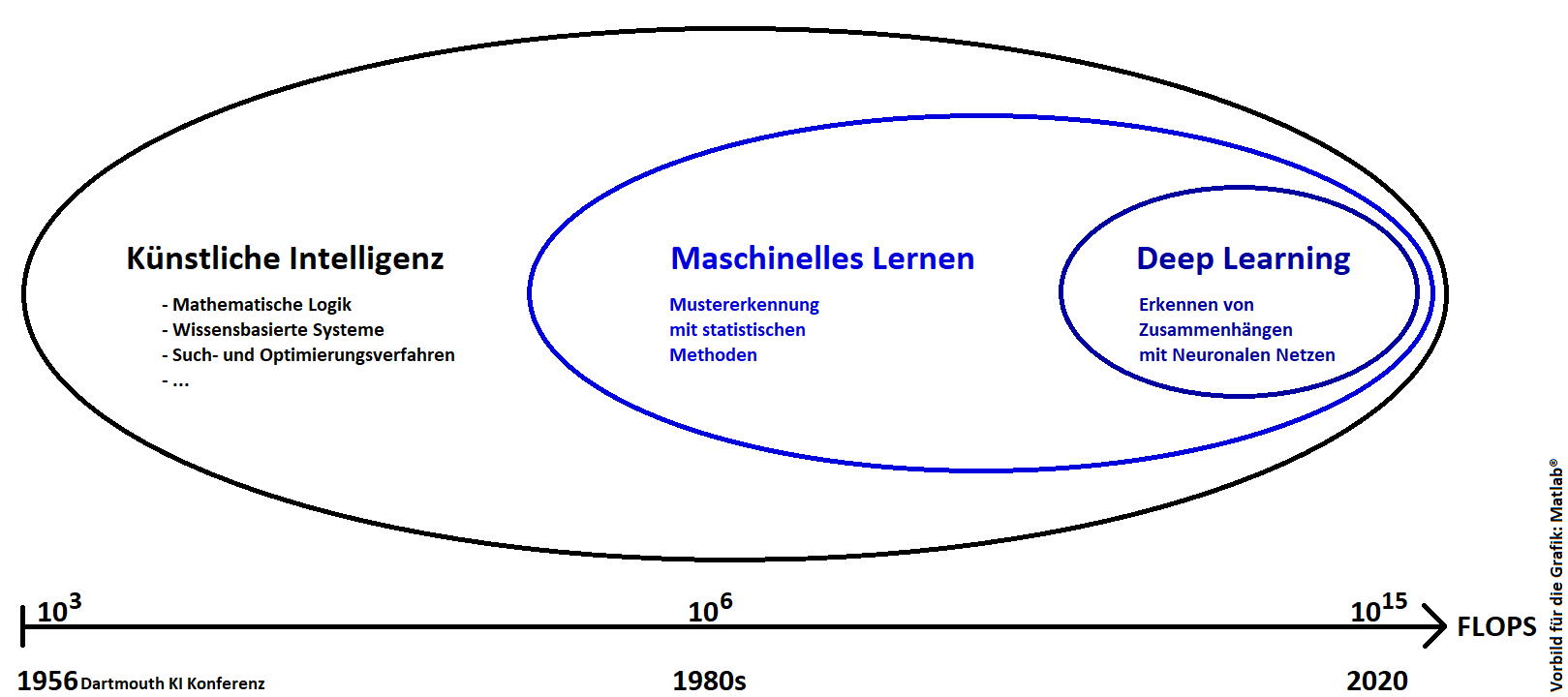There is no common definition of Artificial Intelligence, no general nomenclature, compulsory for everybody. This would be nice – for the sake of easy communication. However, even in science, some terms are not accepted everywhere and by everyone.
AI is largely a rapidly growing field of research. Subjects are changing, boundaries are shifted, dissolved and new ones are set. It may take many years – this is true not only for AI – to crystallize a consensus to be written in a textbook.
A quite widespread point of view, however, arranges the three basic and today’s most popular keywords: “AI” itself, “Machine learning” and “Deep learning”. As a comprehensive term, AI is intelligence, implemented on machines, which imitates individual functions of human mathematical-logical intelligence (emotional and social intelligence are closed to machines, perhaps forever). This is a weak definition of AI, because it includes many traditional algorithm programming methods (which means that sometimes AI might be used as a deceptive term).
AI, in a narrower sense, is synonymous with Machine learning (sometimes called "classic AI" already) is appreciated as a subset of the AI defined above. Deep learning, in turn, is only that subset of Machine learning, that uses neural networks.
Prof. Ralf Otte, lecturer for Industrial automation and AI at Ulm University of Applied Sciences defines (here only a short version is given): “Machine learning is a generic term for the generation of knowledge from data. ... [It] creates knowledge that ... can be generalized in order to assess ... unknown data. … Such knowledge can… be represented by artificial neural networks (ANN).“ As well, the last sentence of this excerpt specifies Deep learning as a subset of Machine learning.
The figure below shows "the set theory of AI" and contains additional, descriptive explanations.

Now, we have classified the three terms –without having understood much. Because we didn’t say what “knowledge” and what “intelligence” is. And “Neural networks”? For that we would have to go deeper into theory. But we don’t do it for now. It’s more important to find out what AI actually can do for us. Is there a quick, practical introduction? We'll tell you in the next blog post!
